What brings the ladies of A-Force together during the Secret Wars event? Obviously it's a response to very vocal fandom that's quickly filling up with women in the real world, but in context of the Marvel Universe what brings these drastically different women together as an Avengers team for the first time ever?
G. Willow Wilson: I think one of the cool things about Secret Wars is that for the first time we get to have all of these characters who don't normally interact — usually they're in their own little corners of the Marvel Universe, but now all of a sudden they're in the same place — so that seemed like a great opportunity to bring together some of the First Ladies of Marvel as well as some fan favorite characters on to one team with one mission. It made a lot of sense to do it now and sort of use the momentum that's been building up in the fanbase and the demand for more stories from more diverse voices. We're hoping that it's gonna be a great ride.
Will people who aren't caught up on Secret Wars, but are totally into the idea of an all-female Avengers run, be able to jump into Issue 1 of A-Force and keep up?
Marguerite K. Bennett: Within the event, there's this island in the Secret Wars world called Arcadia, and this is the place where all of the heroines of the Marvel Universe operate in this, you know, ideal civilization...and I have to be really careful of the things that I can and can't say. But we're gonna make it as accessible as possible. We want this to be Women Of Marvel, The Book. You'll get to see this insane, crazy —you know, pushing characters to the limits stuff — but also seeing the decimation of their relationships and the depth of emotion and the power that they derive from being part of the sisterhood.
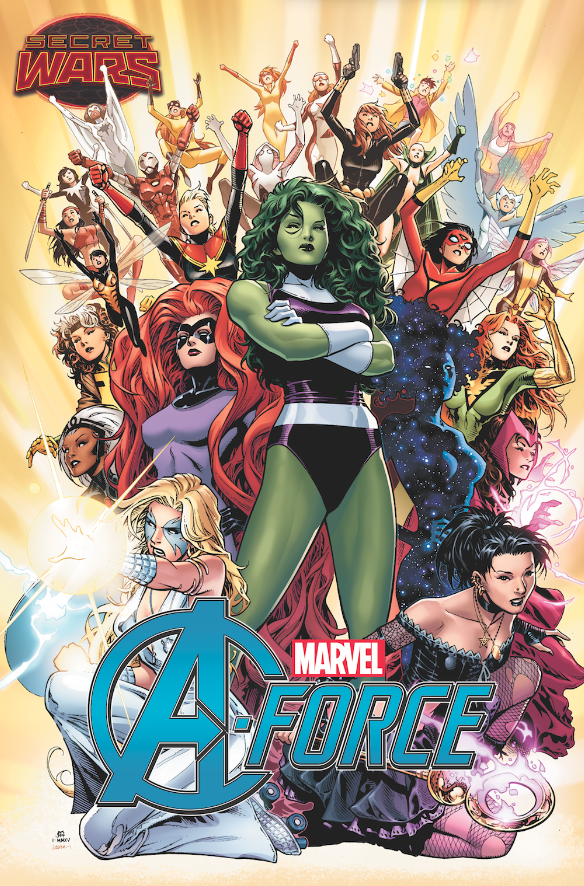
Looking at the #1 cover, there's a cavalcade of stars from Storm to Nico (from Runaways), how we can expect to see the team grow? How will A-Force effect the other books that these ladies are in?
MKB: For the purposes of Secret Wars, they just gave me a blank slate and let me run with it. I got me a list, I mean I couldn't fit all the stuff that I wanted to include in the story on a single cover; we would need a poster the size of a wall to do that justice. There's not as much concern with continuity [with books outside of Secret Wars] and it's really just letting us go with the sky's the limit.
We could see any and all our favs at anytime?
MKB: Yes! Unless Marvel smacks me with a rolled-up newspaper, they're gonna show up in the story.
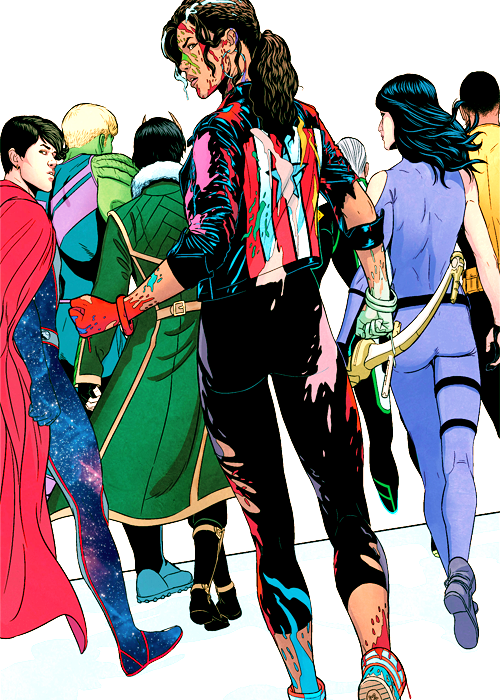
What do you ladies hope to do with A-Force that you don't think is being done in other Marvel books right now?
GWW: I think what we'd really like to do is tell a very different kind of story. We're not sort of interested in making a typical team book. We've got characters in here who have very different power sets, very different personalities. I think we're gonna try to create scenarios and challenges for them above and beyond just like the [old-timey announcer voice]: Here is Super Villain No. 123, go to town! I think what we'd love to do is tell a story that's big, that's colorful, that has superhero-size doses of big, sparkly fight scenes but also gets into some of the nitty gritty of what makes these fan-favorite heroes tick. A lot of these characters have been around for a long time but never in the same space.
We've grown accustomed to seeing mostly guy or all-guy teams that are very, very different, like the Avengers that we see in the movies where we've got Thor from Asgard and his power set is completely different than Iron Man who is a genius and billionaire and a scientist who's very different than Captain America who was frozen and brought back to life. So we're used to seeing that with the predominately male teams and it's really exciting when that works well and you can see all those very different storylines come together, but we've never seen that with a predominantly female team, even though the Marvel Universe has this very rich history of powerful female characters who really drive the story. A-Force is a real opportunity to show these characters' strengths, to show where they're gonna really clash in terms of their personalities and their priorities and to do it in spectacular style, which is what the Avengers are all about.



So Agent Carter is doing some of the most interesting things in the Marvel Universe in terms of villains. Peggy's greatest villain isn't Hydra or even evil power of the week, it's the sort of entrenched, creeping, insidiousness of the patriarchy and how it completely surrounds her. She'll never be able to completely defeat it, and every victory she has in earning the respect of her colleagues is followed by a long backslide. Is A-Force going to play with similar themes, or a similar kind of sleeper villain?
GWW: There kind of is, yes, the long-term villain in this is going to be very closely tied to one of the characters in a way that I don't quite want to give away, but there's a very personal element to this for sure that brings into question how much you're willing to sacrifice to succeed in your mission.
Does this tie into Singularity, the new cosmically charged character that you're introducing in A-Force?
GWW: She's on the team. The villain will sort of, again there's not much we can talk about, it'll be sort of teased out as the story evolves.
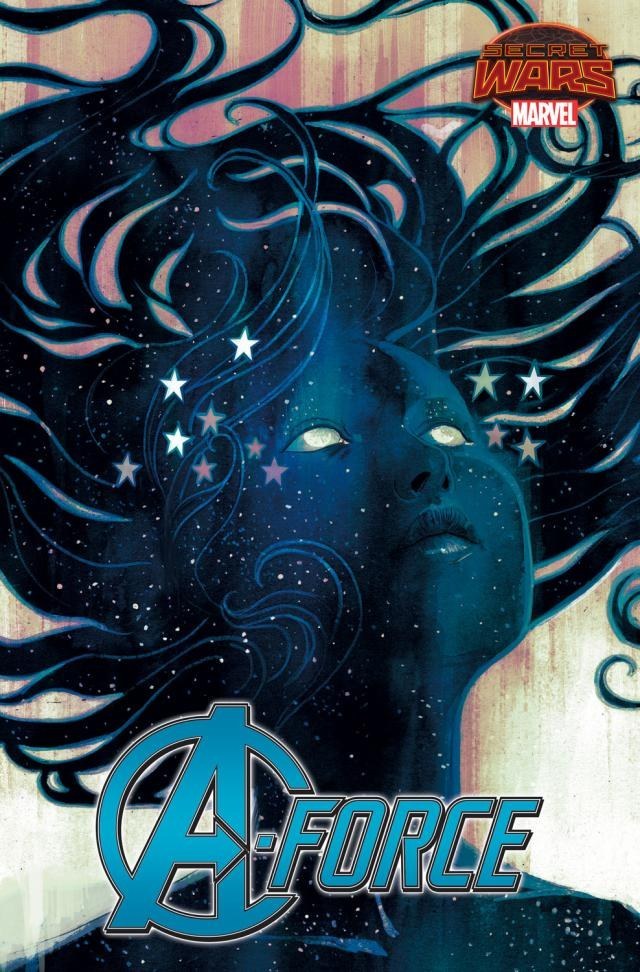
How has negative feedback or a hatery element of fandom on your other projects influenced your writing on A-Force?
GWW: Marguerite do you get much haterade?
MKB: I do, I went right into the deep end on my first solo book which was a very controversial project with DC. Maybe it just sort put me through the fire, and now it's...I survived that, so you know, come at me bro!
I just try to let it roll off of my back because they're not the people that I'm writing for so why should I give them a spot on the council of editors? One of the best pieces of advice I ever got was when you accomplish something, don't do it so that you can go to the people who said they knew you wouldn't, they knew you couldn't, and prove them wrong, do it so that you can go to the people who always supported you, who said I knew you would, I knew you could, and prove them right. I'm just trying to focus on the people that this book will make happy and that'll make us happy.
GWW:There was some blow back before Ms. Marvel came out, when nobody really knew what it was going to be about and so there were a lot of assumptions made. Whenever you do something different there's gonna be a certain cohort of people who think that you need to justify your existence. Nobody ever asks, "Well why does this team have to be all straight white men?" Justify that, how do I know that this isn't part of some straight white male agenda, nobody says that! Even though you could! Whenever you do something that isn't straight, white, and male, you end up having to field those kind of existential questions, Why does this need to exist? Which is a little bit depressing that we even have to do that.
But once Ms. Marvel came out, and people saw what it was, most of that disappeared. We weren't out there to be sort of cookie cutter, here's your identity politics, we'll pat ourselves on the back for diversity and then all go home. We were out to tell a real story, an authentic story that people could connect with and once that happened a lot of that initial naysaying disappeared.
It came up again in a much bigger way than it had at the launch of the series after a bunch of street artists or someone plastered Kamala over these islamaphobic bus ads in Toronto.

What an amazing testament to what Ms. Marvel has been able to do.
GWW: Yeah! I had no idea about it until somebody posted pictures on Twitter and were like, hey have you seen this? And I was like, no I have not, thank you for bringing it to my attention. So yeah I had to block a lot of people on Twitter who were just like making all kinds of gross remarks in response to that. But you know generally speaking, it's like Marguerite said, these are not the people who were buying your books, these are not the people who are going to buy your books, you are not losing readers because of these people, these are just angry people who are looking for targets for whatever their particular schtick is. Whether it's being anti-feminist or anti-Islam or anti-immigration, anti-LGTBQ, whatever it is, once you get done with that and realize I'm not losing readers, these are not readers that I've ever had, then it becomes OK because then you realize it's not really about you.
What's the most common problematic behavior that needs to be corrected in the way female comic book characters are written?
MKB: Focusing on making them likable instead of making them competent.
GWW: Wow, that was good, you're totally right. That's a very succinct way to put it.
MKB: That's one of the biggest issues that I actually run into being a professional in the industry.
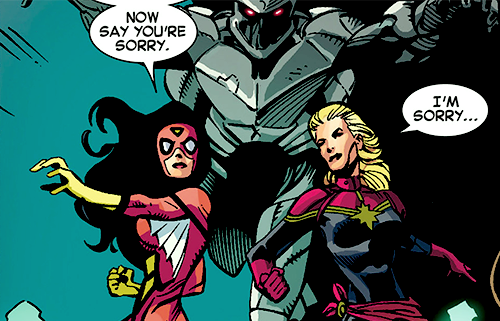
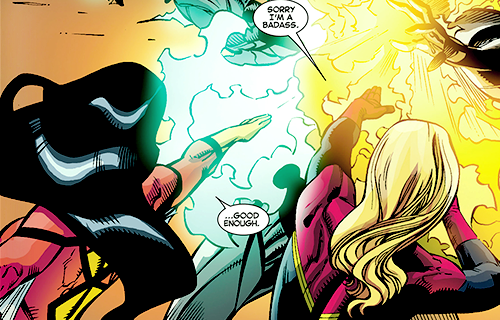
What's your advice to writers who want to tackle this problem but aren't sure how to go about making those women three-dimensional characters?
GWW: Everybody has women in their lives, so you know I think getting rid of that mental barrier where women on the page have to be drastically different than women in real life is maybe a good step. We tend to think of women in superherodom as being kind of iconic rather than three dimensional. It's like Marguerite said, there's this idea that they have to conform to a certain ideal to be likable and so we don't tend to see the kind of complexity that we do in male characters, there's not a whole lot of...
When a guy character makes a moral gray area choice we're usually still on board because that's like real life, it's not black and white. But we tend to not assign those kinds of choices to female characters, I think out of fear. So a place to start is, look at the women in your life, look at the choices they make, look at what they're struggling with, and go from there. There's no reason to think of comic book women as sort of a separate species.
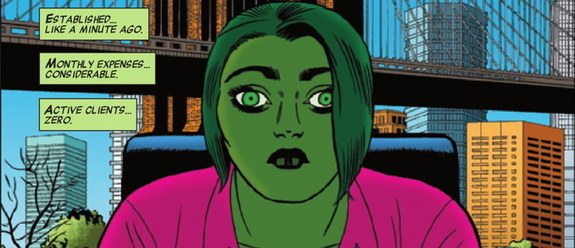
Who are the comic book writers who are getting it right? Give us a sample of your feminist pull list.
MKB: Ms. Marvel!
GWW: Awww.
MKB: Captain Marvel, Noelle Stevenson's Nimona. I'm gonna be here for the rest of the afternoon naming books, this is such a great time to be getting into comics.
GWW: Saga. I mean Brian K. Vaughn if we're talking about male writers getting female characters right, I think he does a pretty great job.
MKB: Greg Rucka and Kieron Gillen!
GWW: Yes Kieron Gillen!
Yes! Every time I read The Wicked And The Divine I'm like yes, Kieron Gillen you're one of us, I feel it.
MKB: Yes! There's sometimes where you know he says things where I'm just like, I should have thought of that. Ugh he's a better feminist than I am. [Ed's Note: Kieron Gillen is Marguerite's co-writer on Angela: Asgard's Assassin.]
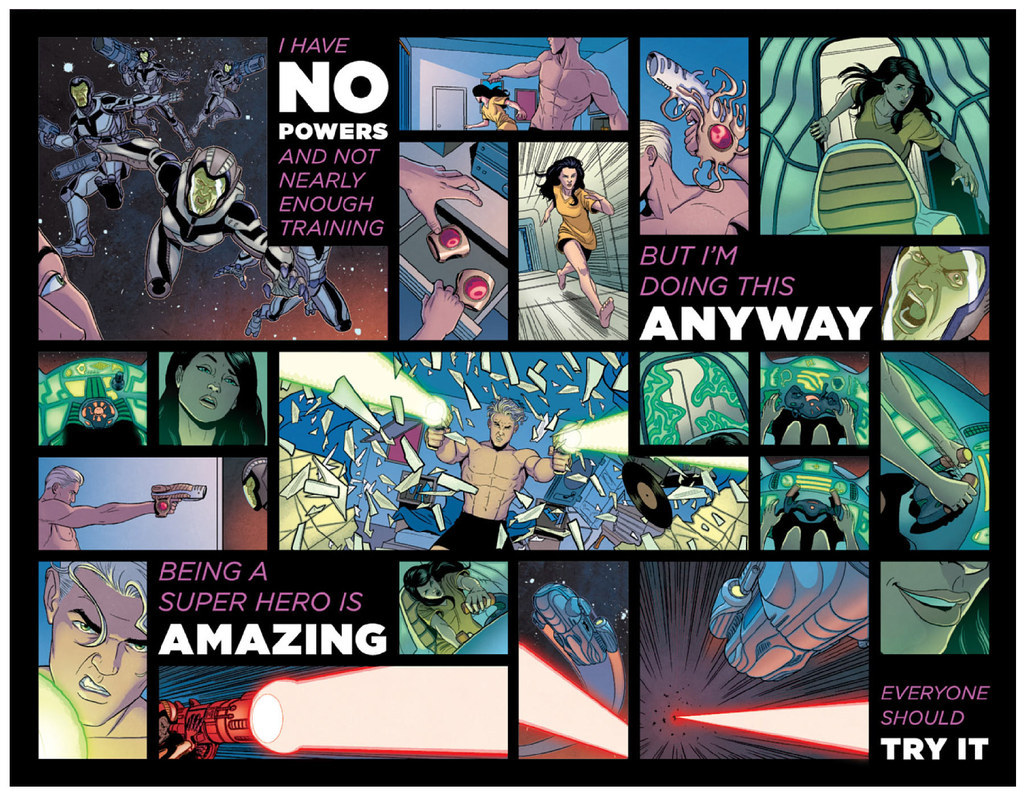
Where do you think Marvel can improve diversity in terms of moving comics forward?
MKB: The first thing would be to write more women in general. When you've got five guys and one woman on a team, all of a sudden there's this enormous pressure that's put unfairly upon her where she has to represent all women ever. She has to be compassionate and funny and witty and still totally capable and smart and wise and maternal and frivolous and —
GWW: She has to be all things at all times.
MKB:Yeah! She has to validate every form of femininity.
And the second thing is: Write people, not tropes, which is what Willow was saying. People just tend to reflect what they get out of their media as opposed to looking at the real world around them. Just try and write a flesh and blood person. The dullest person that you know is going to be inherently more complex than the most fascinating character on the page. There's just more that's going to be going on in their head and in their heart.
And the last thing that I would say is, stop with the girl on girl hate.
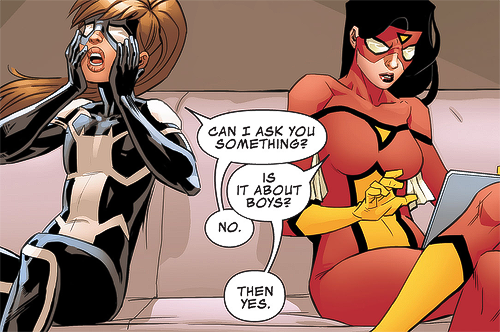
And one quick question to wrap up, who would you love to see in their own solo movie that hasn't been announced yet?
MKB: America Chavez!
GWW: Ooo that would be fun! Miss America. She's great.
I'm really hoping for a Young Avengers miniseries on Netflix.
GWW: You never know! I'm gonna have my fingers crossed right along with you.
Also you know, everyone wants to see Storm done right. Storm is one of those characters like Superman or Batman or Wonder Woman, where everybody has such a personal connection to her, including me, and everybody wants to see the Storm in our heads on the big screen. Obviously she can't be all things to all people, but I don't quite understand why she doesn't have the same iconic status in mainstream pop culture above and beyond comics that Wonder Woman does. It would be cool to see her up in the ranks with the culturally ubiquitous.
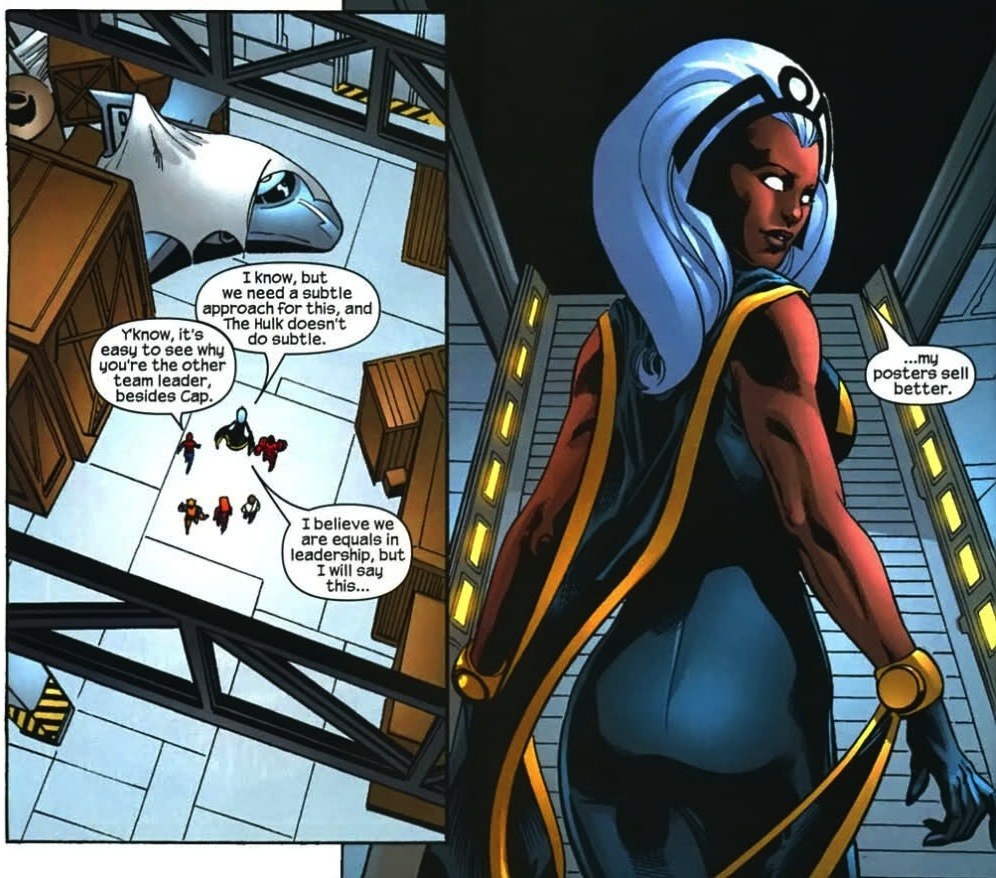
The first issue of A-Force will be out in May.
This interview has been condensed and edited for clarity.
